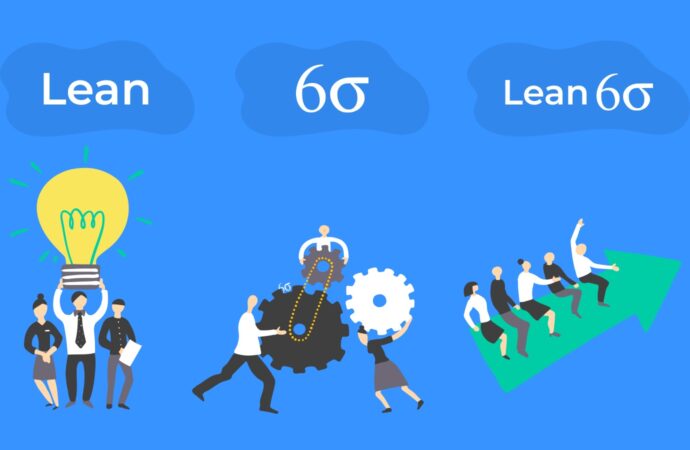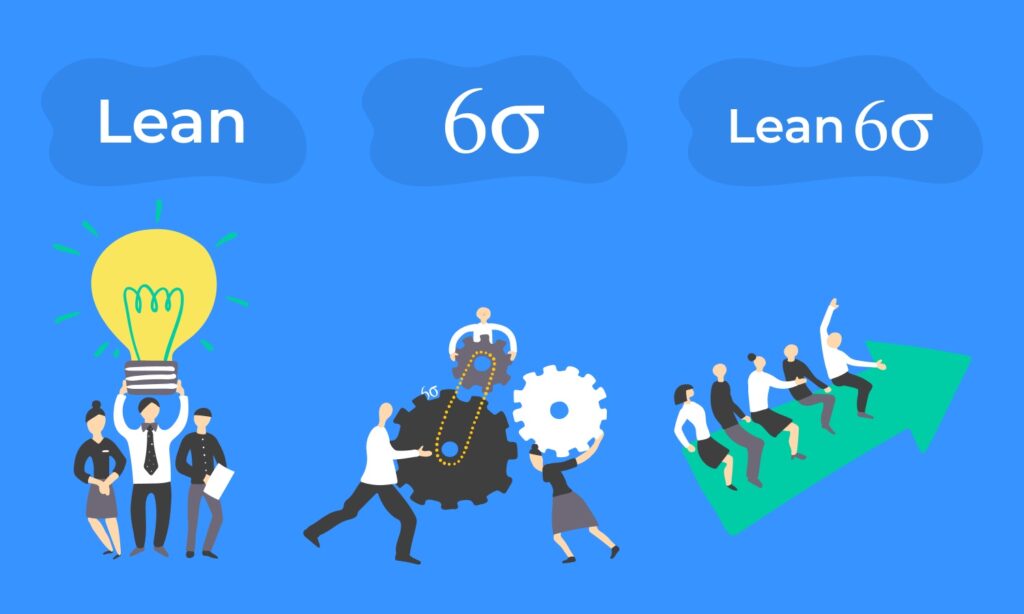Nashville Residents - Learn Lean Six Sigma’s History Here
Contact Us

As a methodology that has been around for over two decades, you can expect Lean Six Sigma history to include lots of twists, steps, and details that most people ignore or try to condense into the simple idea that LSS comes from two individual methodologies: Lean and Six Sigma. Although this is accurate to a certain level, we at Lean Six Sigma Curriculum for Nashville High School Students of Texas know best about the origins and how it came to be such a game-changing method in the U.S.
Before you make the leap to certification or training, we recommend you do your research, as this methodology is often more than what many believe. By doing so, you will also have enough resources to help you make an informed decision about whether this is the right path. Regardless, LSS is always a good option, but it is a great bonus if you know what exactly.
For starters, this methodology was created to help companies prioritize customers, ensure efficient processes, and increase earnings.
If done right, the methodology can help reduce costs and eliminate waste. It is crucial to ensure that quality and performance are always top of mind as well, which means all four objectives can be achieved with this method alone.
This approach meets the above goals, improves customer satisfaction, and reduces lead times. This approach draws upon the knowledge and experience of all involved and the reason why practitioners should be trained and certified.
As mentioned earlier, LSS is pretty much a combination of Lean and Six Sigma. Still, it isn’t a blunt copy of both as it includes more principles and approaches to achieve more than one goal at a time and more than just the established ones by the other two methodologies.
Where Does Lean Six Sigma Come From?
It is essential to fully understand Six Sigma’s founding principles and logic before you implement the entire methodology in your company or personal processes.
LSS sees its origins due to the need for competition against Japanese industries and how they were manufacturing good products that satisfied customers, reduced waste, and boosted profits. They were able to be the most competitive market back in the 80s since methodologies like the Kaizen one were driven by customer satisfaction and waste reduction.
Now, in terms of LSS and its composition, Six Sigma and Lean have been around for decades. Lean was actually invented long before Six Sigma. Toyota invented Lean manufacturing in the late 1940s to reduce non-value-adding activities in specific.
Lean’s main idea is that employees should be actively involved in organizational change to foster excellence. Lean believes continuous learning and improvement are the two most important pillars for ensuring everyone is happy.
Lean’s foundations came from Toyota Production Systems (TPS), which founder was the Japanese Taiichi Okno. Meanwhile, the method was used in Henry Ford’s innovations and Business Process Redesign.
Moving on with Six Sigma, this methodology differentiates from Lean for the main aspect: it is more data-driven. The method was developed by Motorola and has been successfully used by General Electric.
Six Sigma, a process improvement technique, dates back to the 1980s and right before professionals and experts decide to unify Lean and 6 Sigma into one methodology by taking the best of it and adding new principles.
Six Sigma’s structure centers around the DMAIC option. Define, Measure, Analyze, Improve, Control. This is useful for manufacturing but also in other industries to automate their processes and ensure no issues are slowing the cycle and, instead, maximize each step.
How Is Lean Six Sigma in the USA?
This method was created to enable American companies to compete against Japanese manufacturers. It is a mixture of both existing methods. As you can guess, it began in the U.S.A before any other country, considering how it was meant for manufacturing industries in the nation.
This is one of the reasons why American industries were able to stay on top of the game and still go strong today. New fields and areas have also noticed how Sigma can be more than just for products and services.
Schools and educational institutions can develop systems that are more efficient and easier to use. Students can learn LSS, which will improve their career and job prospects while adding more valuable skills to their personas.
You can reap many benefits, and it can help you increase your professional and personal chances. If you are interested in learning more and getting involved, contact Lean Six Sigma Curriculum Pros of Nashville and inquire about our training and certifications.

